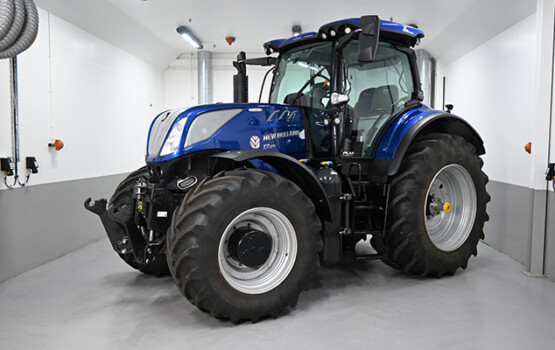Portal for more climate-friendly mobility
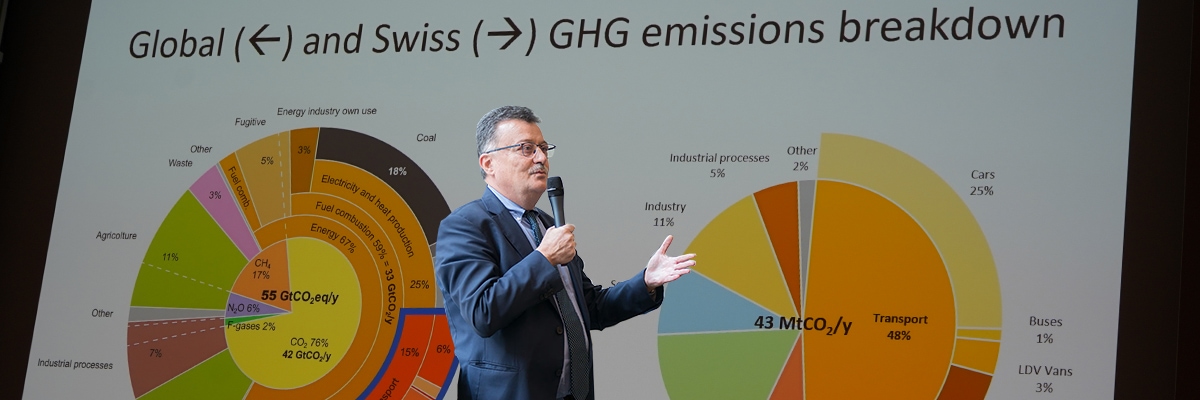
E-fuels and biogas a must for experts
To achieve the climate targets, individual transport and the entire transport sector must become practically CO2-free by 2050. However, the question remains how this objective is to be achieved and, above all, with which technologies. After all, it is far from clear how clean energy can be used and distributed without compromising the security of supply.
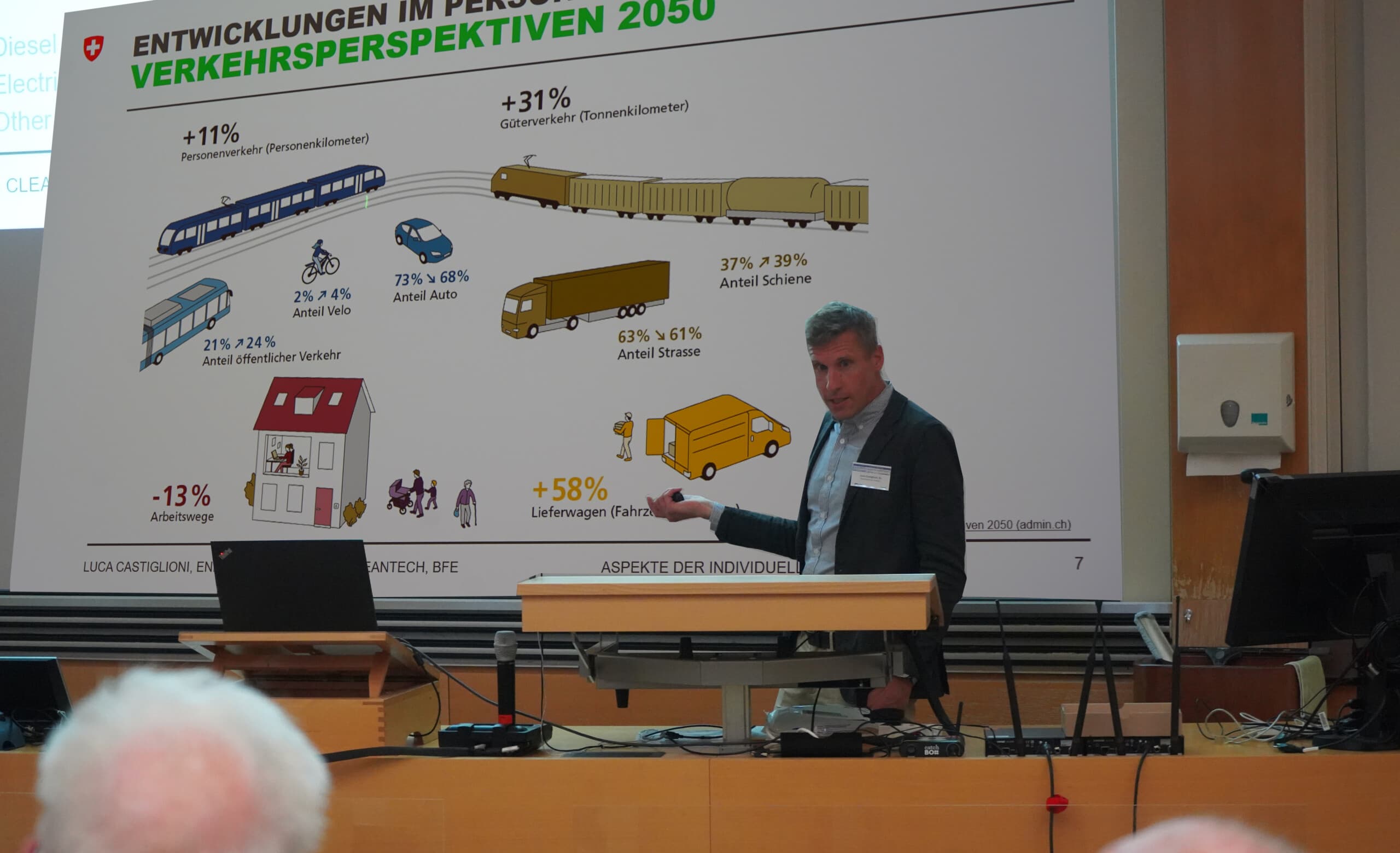 Luca Castiglioni from the Swiss Federal Office of Energy. Source: CNG-Mobility.ch
Luca Castiglioni from the Swiss Federal Office of Energy. Source: CNG-Mobility.ch
Electromobility is undoubtedly one of the key technologies for achieving climate targets, with experts wondering how much electromobility Switzerland can tolerate now and in the near future. For the experts, the main focus is on the key aspects: firstly, is there sufficient clean electricity available and, secondly, how can energy distribution at regional and municipal level be gradually expanded in an appropriate and financially sustainable manner? This is because in reality, the transition to electromobility is likely to take quite a bit longer than predicted by pioneers in energy policy. In addition, at least in aviation and, in all likelihood, also in heavy goods transport, synthetic fuels, so-called e-fuels, or the use of biogas and hydrogen, will be unavoidable.
Luca Castiglioni from the Swiss Federal Office of Energy made it clear that according to the “Transport Perspectives 2050,” passenger transport would increase by 11% and freight transport even by as much as 31%. In addition, the federal government’s experts expect a huge increase in the number of kilometres driven by delivery vehicles of 58% by 2050. “The technologies for reducing CO2 emissions are available. There are various possibilities, ranging from relocating, improving and avoiding,” says Castiglioni. “We need to start integrating the electric car into the energy market as one of the players. After all, overall these vehicles can become an important virtual power plant.”
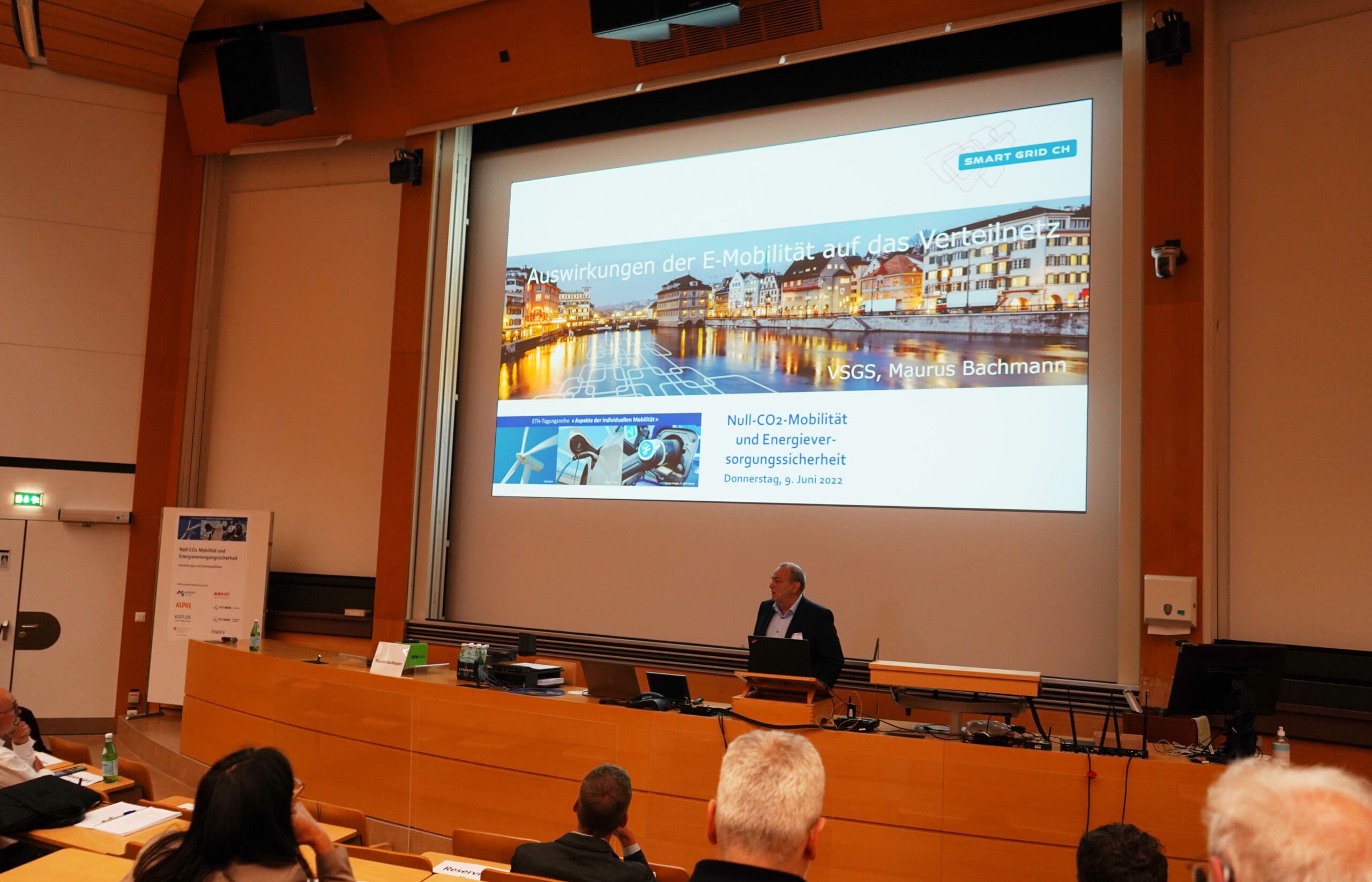 Source: CNG-Mobility.ch
Source: CNG-Mobility.ch
While an increasing number of electric cars on the roads are helping to reduce CO2 emissions during operations, they also pose new challenges in terms of electricity consumption and grid stability. From September 2022, around 50 bi-directional-charging production electric cars from Honda will be used in the “V2X Suisse” pilot test. Their operating reserve will help stabilise the power grid, minimise bottlenecks in the distribution grid and prevent, reduce or delay expensive grid expansion in the distribution grid.
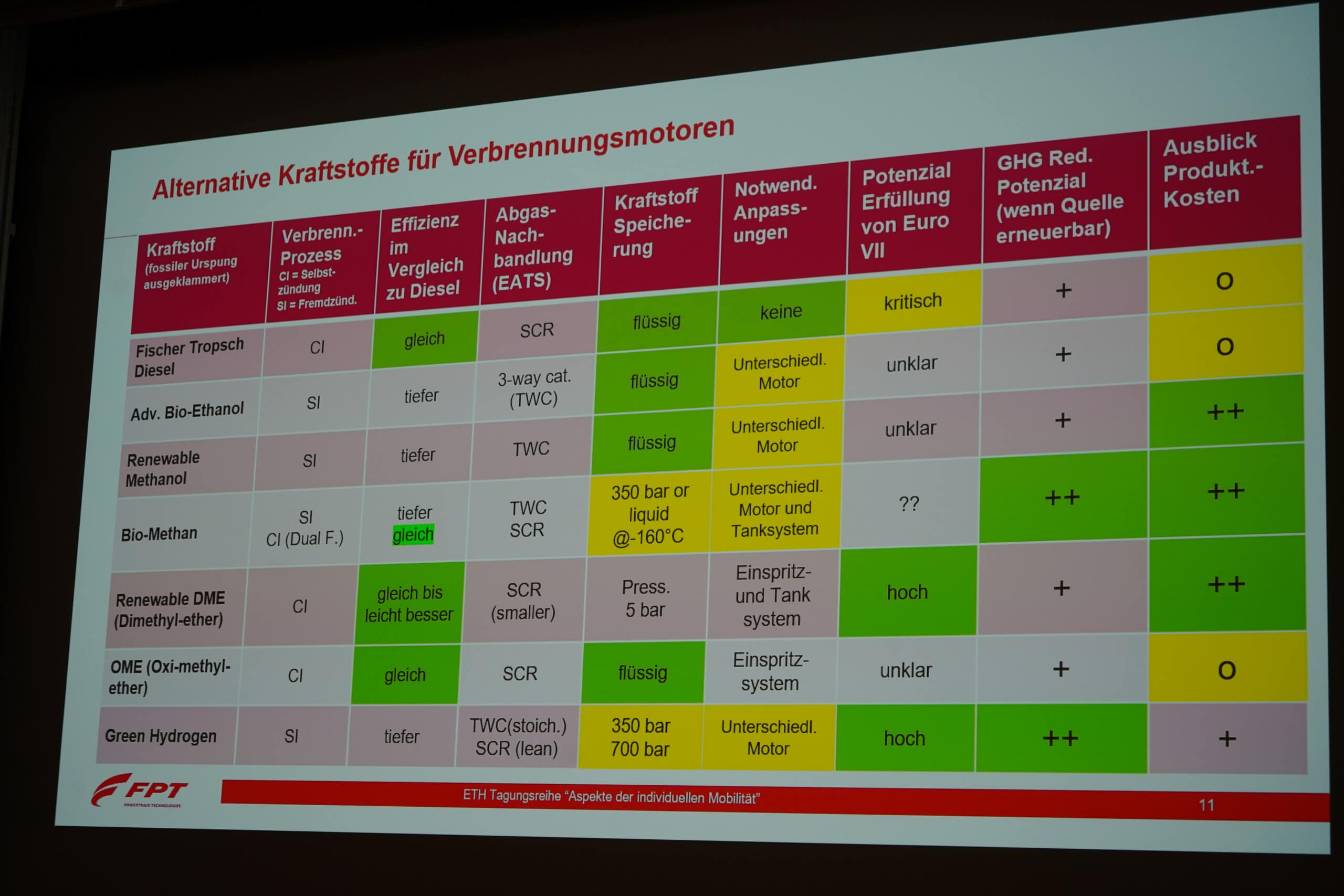 Daniel Klein from FPT engine research analysed the potential of the different fuels. Source: CNG-Mobility.ch
Daniel Klein from FPT engine research analysed the potential of the different fuels. Source: CNG-Mobility.ch
Daniel Klein from FPT Engine Research then made it clear at the Inspire event “Zero-CO2 mobility and security of energy supply” that the internal combustion engine will continue to be the measure of things in the future, particularly in heavy-duty and long-distance transport applications – even if Europe’s politicians push ahead with the combustion engine phase-out. “As a global manufacturer, we also have to align ourselves globally, which is why we are also developing CNG and LNG solutions further,” explained Klein. FTP Industrial develops engine and propulsion solutions for vehicles of the brands Iveco, Magirus, Case IH, News Holland and Steyr, among others, and definitely sees a future for internal combustion engines. “In addition, the existing vehicles are always somewhat neglected in all the calculations, but switching to a fossil-free fuel could make a very big difference,” says the FPT development engineer. Daniel Klein sees the challenges of biogas applications as being the space-saving storage of the CNG on the vehicle itself and the stoichiometric combustion efficiency of biogas. On the other hand, he states: “The low production costs and the great greenhouse gas reduction potential clearly support further biogas applications.”
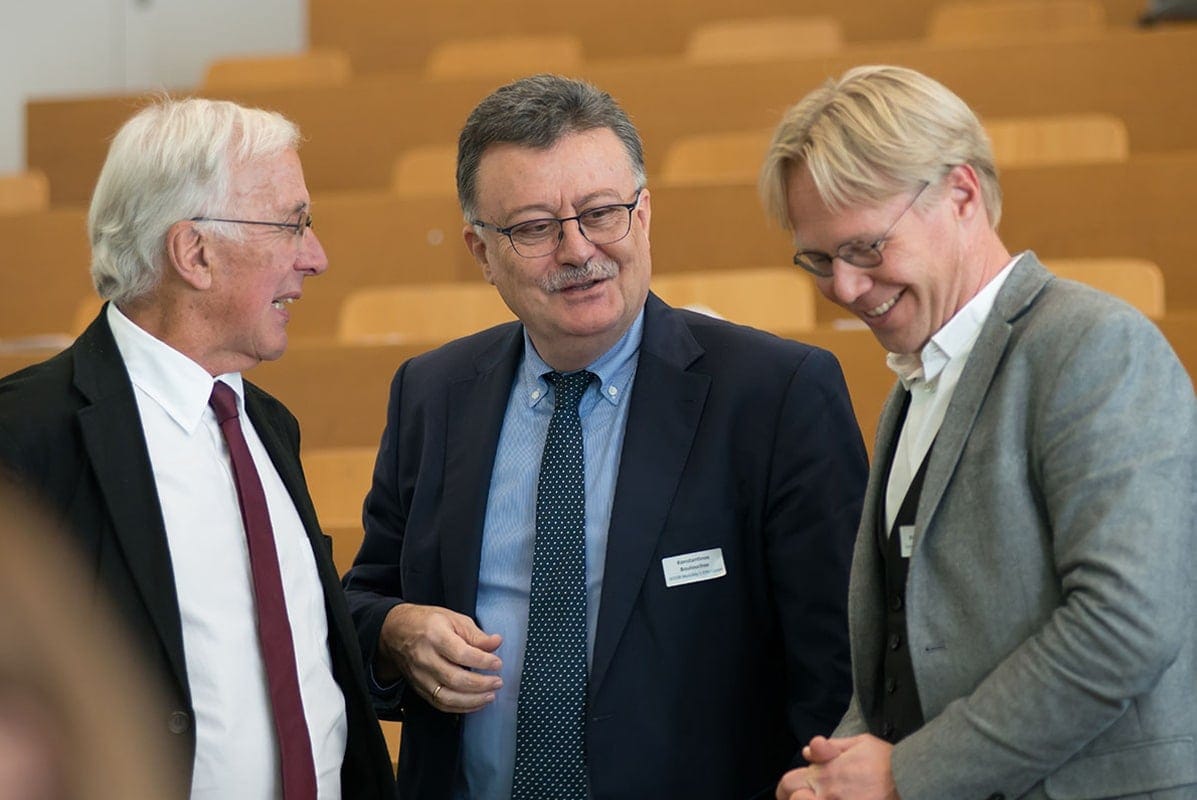 Konstantinos Boulouchos, professor emeritus at ETH Zurich and head of SCCER Mobility (centre) in conversation. Source: SCCER Mobility
Konstantinos Boulouchos, professor emeritus at ETH Zurich and head of SCCER Mobility (centre) in conversation. Source: SCCER Mobility
It is clear to ETH Professor Emeritus, Konstantinos Boulouchos, that the climate goals cannot only be achieved with electromobility: “We also need to use e-fuels. And it’s not a matter of wanting to do so, but rather we quite simply must do so!” At the event organised by Inspire AG, the leading Swiss centre of excellence for technology transfer from ETH Zurich to industry, he pointed out that shipping is often forgotten when it comes to transport logistics: “In long-haul and commercial transport, we will continue to rely on the existing transport system for years to come.” This is why projects in the field of local biomass use or synthetic fuels and e-fuels are so important, not only in the field of mobility, but also for the heating market. Konstantinos Boulouchos explained: “We have to break away from focusing on electricity. We must also establish e-fuels as an industry, because we simply need chemical and sustainable energy sources for the mobility of the future!” (pd/jas, 7 July 2022)
The individual presentations at the Inspire event
“Grid integration of electromobility and the role of the transport sector within Energy Perspectives 2050+”, Dr Luca Castiglioni, Swiss Federal Office of Energy
“More than crude oil – the evolution of fuels”, Fabian Bilger, Avenergy Suisse
“Aviation on the path to NetZero CO2”, Dr Peter Wild, ETH Zurich
“Where and with which fuels does the combustion engine have a future?”, Daniel Klein, FPT Motorenforschung AG
“Effects of e-mobility on the distribution grid”, Dr Maurus Bachmann, Smart Grid Switzerland
“Expansion of energy supply”, Amadée Murisier, Alpiq
“Energy sources for CO2-free mobility – an assessment”, Prof. em. Dr Konstantinos Boulouchos, ETH Zurich
You might also be interested in
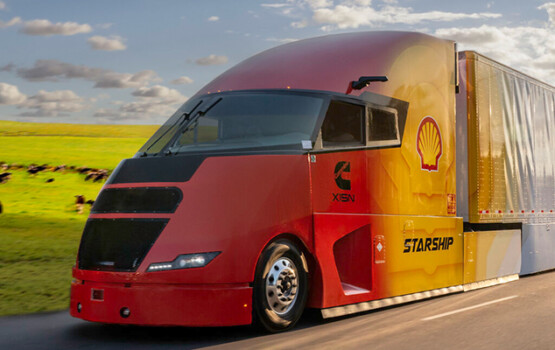
Shell Starship on record hunt
